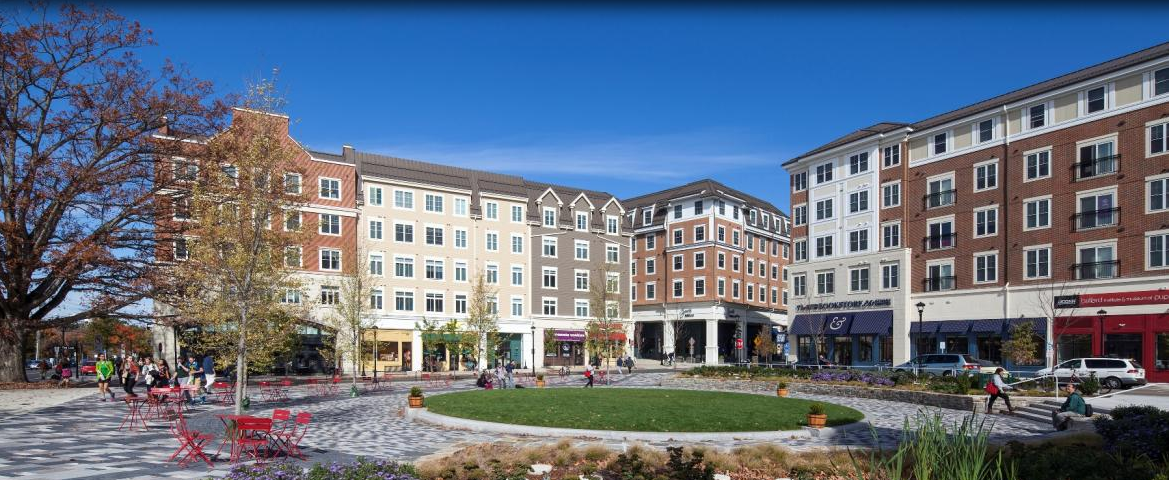
But no giant pumpkins (Copy)
“Southwark Fair” (1737), (etching and engraving), by William Hogarth (1697-1764, British), in the show “Prints and People Before Photography, 1490-1825 ,’’ at the William Benton Museum of Art at the University of Connecticut, Storrs, through Dec. 17.
The museum says:
“The arrival of printmaking in early modern Europe led to new possibilities for mass communication and art collecting. Transportable, reproducible, and relatively inexpensive, prints contributed to the exchange of knowledge and ideas across international borders and among social classes. Prior to the invention of photography, it was prints that provided a window on the world, circulating images of other works of art, distinguished people, and noteworthy places and events. ‘‘
But no giant pumpkins
“Southwark Fair” (1737), (etching and engraving), by William Hogarth (1697-1764, British), in the show “Prints and People Before Photography, 1490-1825 ,’’ at the William Benton Museum, at the University of Connecticut, Storrs, through Dec. 17.
The museum says:
“The arrival of printmaking in early modern Europe led to new possibilities for mass communication and art collecting. Transportable, reproducible, and relatively inexpensive, prints contributed to the exchange of knowledge and ideas across international borders and among social classes. Prior to the invention of photography, it was prints that provided a window on the world, circulating images of other works of art, distinguished people, and noteworthy places and events. ‘‘
Downtown Storrs
— Photo by Le.kiff
Chris Powell: Conn. can do without higher education for a while; more Bridgeport bathos
Main quad at the University of Connecticut’s flagship campus, in Storrs
— Photo by Daderot
MANCHESTER, Conn
First the University of Connecticut asked state government for an emergency appropriation of more than $100 million. Now the state colleges and universities system, which operates the regional universities and community colleges, is asking for an emergency appropriation of $69 million. UConn's deficit arises largely from mismanagement of its Health Center. The regional universities and community colleges suffer most from falling enrollment.
Ordinarily institutions losing so much money would do more than wring their hands and seek bailouts. They would cut expenses, and since most higher education expenses are personnel, they would cut there. But since state government has been under Democratic administration for 10 years and state government employee union members constitute the party's army, their contract forbids layoffs and reductions in compensation.
So while the universities and colleges can turn off their electricity, heat, and internet service, they can't economize in the most practical and effective way. Even if they closed entirely they still would have to keep paying everyone, at least until the current contract expires.
So what is to be done about higher education's insolvency?
Legislators seem to have nothing to say about it, and they hardly meet anymore even though they still seek re-election next month. Gov. Ned Lamont has yet to offer any ideas, and he may be finding little glory in ruling by decree, since his work increasingly is just a matter of calculating deficits and seeking more federal bailouts. With the state's economy having shrunk by almost a third this year amid the virus epidemic, tax increases can't be seriously talked about until after the election, and even then it will be crazy talk. But the state employee union contract demonstrates Connecticut's infinite capacity for insanity in government.
Actually, while it wouldn't save on payroll right away, closing higher education indefinitely might be best.
For only a fraction of higher education produces any practical value to the state's economy, and while the rest of it theoretically can give students greater understanding and appreciation of life, it is deteriorating.
Most students admitted to the regional universities and community colleges already require remedial high school courses, having been advanced not by learning but mere social promotion. UConn has escaped the remediation scandal but still is being swamped by the political correctness sweeping higher education nationally.
There is less education, more indoctrination and political posturing, and more complaining about "systemic" racism to keep everyone in line with the indoctrination even as no one ever identifies the supposed racists or racist policies. Despite the prattle for "diversity" there is little political diversity among the faculty. People of all ancestries are welcome as long as they think the same. The idea of inviting a non-left-wing speaker sets off alarms.
The problem with education in Connecticut is not higher education but lower education, since most high school graduates fail to master basic high school work. This is worst in the cities. This is always presented as a money problem but decades of spending increases haven't changed anything, since it's a parenting problem.
Until higher education can find a purpose higher than subsidizing educators, Connecticut could do without it.
xxx
FOREVER CROOKED: Add the new corruption in Bridgeport to the long list of disturbing issues being ignored at the state Capitol. Last week the city's former police chief -- a close friend of Mayor Joe Ganim, Armando Perez -- joined former city personnel director David Dunn in pleading guilty to federal charges of rigging the chief's testing and hiring procedure.
The mayor already has served a long prison sentence for the corruption he committed during his first administration, and everyone understood that he wanted Perez to be chief during his second administration. So it is hard to imagine that the test rigging happened without the mayor's approval. But the state's political leaders, Democratic and Republican alike, have nothing to say about the matter.
After all, it's just Bridgeport. It's the state's largest city, but also its poorest, so who cares?
Ganim's spokeswoman says the guilty pleas "help bring closure to this matter." Closure on corruption in Bridgeport? That will be the day.
Chris Powell is a columnist for the Journal Inquirer, in Manchester.
Chris Powell: Phony outrage against utilities; legislators: do some work
A Connecticut law requires Eversource to buy electricity from the Millstone nuclear-power plant, above, on the site of an old quarry in Waterford, on Long Island Sound, to keep the facility going.
MANCHESTER, Conn.
Last week's hearings of the Connecticut Public Utilities Regulatory Authority and the General Assembly gave many elected officials their chance to denounce the state’s two major electric companies, Eversource Energy and United Illuminating, over rising electric bills and the long and widespread outages caused by Tropical Storm Isaias.
But the hearings didn't vindicate the piling on done by the politicians.
For it turned out that power had been restored well within the time requirements already set by the utility authority. Additionally, news reports tended to support Eversource's contention that most of the recent increase in electric bills has resulted, first, from greatly increased customer use of electricity as people stay home because of the virus epidemic and run much more air-conditioning during hot weather, and, second, from the state law that recently took effect requiring Eversource to buy power from the Millstone nuclear plant, in Waterford, to keep the plant going.
In effect that law hid another tax in electricity bills, and as usual and as anticipated, the people, uninformed, blamed the electric company instead of their state legislators and the governor.
On top of that, the Connecticut Mirror's Mark Pazniokas reported that only 34 percent of charges on Eversource electric bills is attributable to the utility itself. The remaining two-thirds of charges come from the cost of electricity, which Eversource does not produce but buys from generators chosen by its customers; from state and federal government assessments on electricity transmission; and from state government-required subsidies for renewable energy, energy-efficiency programs and the poor.
Eversource representatives at the hearings had the political sense to take their beating calmly and not challenge elected officials over their responsibility for the high cost of electricity in the state. Of course the elected officials did not volunteer to accept their responsibility. They just wanted to strike indignant poses for the television cameras.
But at least Sen. Matt Lesser, D-Middletown, urged the utility authority to declare "force majeure" and nullify Eversource's power-purchase arrangement with Millstone, in effect canceling the new law.
Given the disproportion in responsibility here -- two-thirds for government and non-utility electricity costs and only one third for the utility stuck with collecting the money for others -- the electricity issue may fade quickly since the elected officials have already achieved so much television time for chest thumping.
xxx
END RULE BY DECREE: With the six-month term of his emergency powers to govern by decree expiring on Sept. 9, Gov. Ned Lamont is likely to ask the leaders of the General Assembly to extend them for another few months. While the virus epidemic has sharply subsided in Connecticut, recent flare-ups like the ones in Danbury and at the Storrs campus of the University of Connecticut could lead to a second wave, especially since many people have begun partying as if there is no longer any risk.
But the governor and legislative leaders should let the emergency powers lapse. The epidemic never was severe enough to justify suspending democratic government, and now that the epidemic has largely lifted, it is time for the General Assembly to get back to work, which it abandoned in cowardly panic in March midway through its regular session.
Legislators are far too content to leave potentially controversial policy decisions to the governor as their campaigns for re-election begin. Though the governor has ruled benignly, these decisions have been made without ordinary public discussion and without putting legislators on the record. Important issues having nothing to do with the epidemic have been neglected entirely. Even if legislators face up to their responsibility for Connecticut's high electricity costs, which is unlikely, another few months of gubernatorial rule will delay action until next year.
Ordinary legislative operations can resume safely with mask wearing and Internet proceedings. After all, isn't it ridiculous to classify supermarket employees, trash collectors and mail carriers as essential workers but not the people chosen to make the laws and evaluate government operations? Their salaries are not large but legislators should start earning them again.
Chris Powell is a columnist for the Journal Inquirer, in Manchester.




